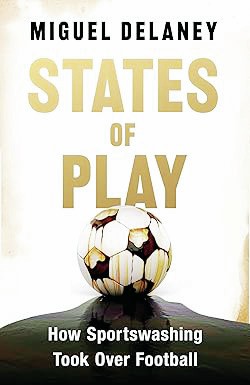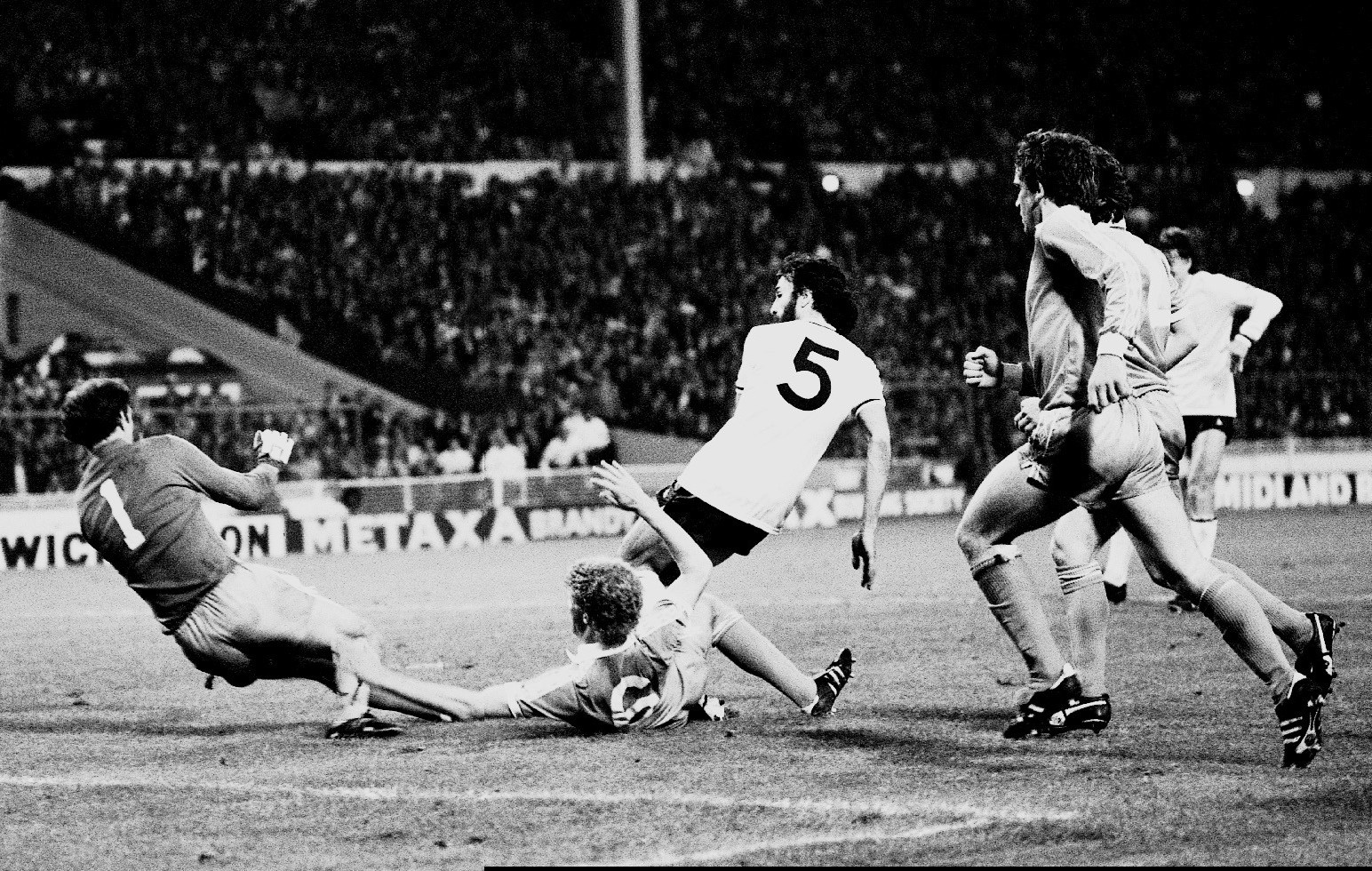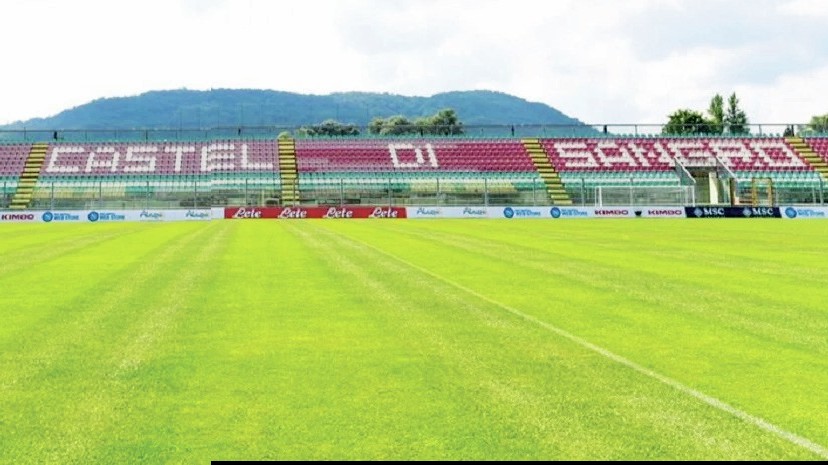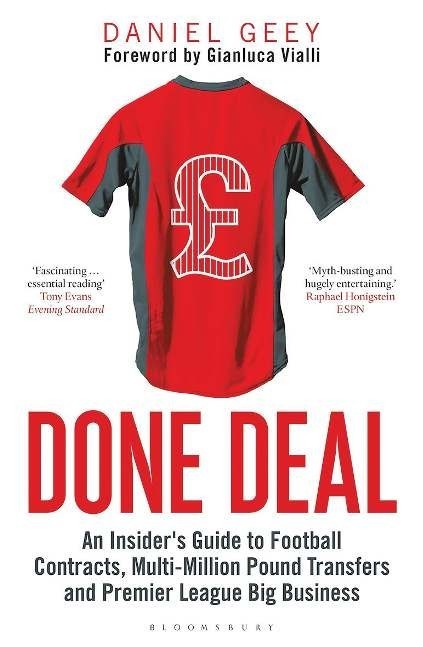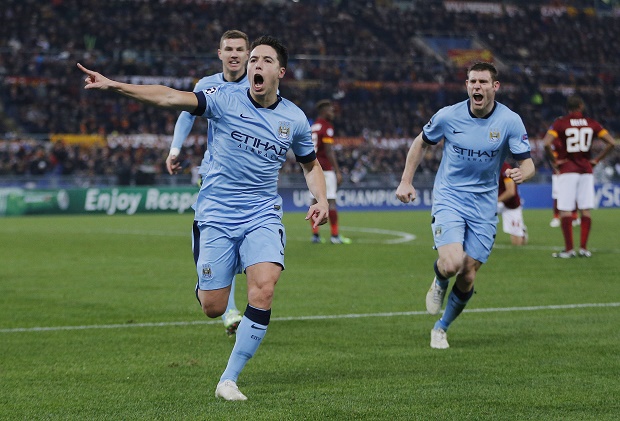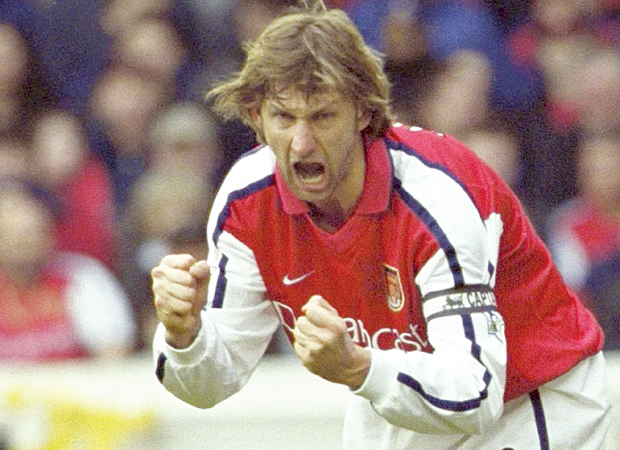-Ian Aspinall
Done Deal – An Insider’s Guide to Football Contracts, Multi-Million Pound Transfers and Premier League Big Business, by Daniel Geey, published by Bloomsbury Sport, price £16.99. Rating out of 10: 7
IF YOU are interested in the inner workings of the football industry, this could be the book for you.
Sports lawyer Daniel Geey provides insights into what goes on behind the scenes with high-stakes transfers, television rights negotiations, player negotiations, player misconduct or multi-million pound club takeovers.
Geey’s clients include Premier League football clubs, international players and agencies; he is therefore able to provide first-hand accounts of what is involved in the business side of the game.
The transfer and contract process is explained in some detail and Geey gives an example of a headline transfer fee of £35m that could reach as high as £71.3m over the length of a player’s first contract.
He uses Liverpool as an example, if they pay £35m for a Brazilian international player. The transfer agreement may state that Liverpool pay: * £35m up front; * £5m on both first and second anniversaries of the player’s transfer; * £5m if the player makes 50 appearances for Liverpool; and * £5m if the player wins the Champions League and the Premier League with Liverpool (£2.5m per win).
When salary, performance related bonuses, image rights and agents fees are factored in from a headline transfer fee of £35m, the total investment that Liverpool may need to pay could therefore reach as high as £71.3m over the length of the player’s first contract: £35m (transfer fee) + £26m (wages) + £3m (signing on /loyalty bonus) + £1m (performance- related bonus) + £5m (image rights payment) + £1.3m (agent commission).
Agents are a particularly controversial part of multi-million pound deals and Geey is very sympathetic to their role and importance in getting a deal done but, nevertheless, it is hard for the reader not to think that they get paid far too much. UEFA says agents made more than €3 billion between 2013-17.
The FA now recommends that agents only get 3% of the player’s income (or in the case of an agent acting for the club) 3% of the actual transfer fee. Geey states that the problem with such a recommendation is that agents usually receive 5-10% on particular deals. Since the recommendation has been in force, not much has changed – so far.
But it is reported that FIFA are recommending sweeping rule changes including the reintroduction of an agents exam, an end to players’ agents representing multiple parties, fixed commission percentages and a transfer clearing house for all monies to be paid when a transfer occurs.
Geey believes that moves by UEFA and FIFA to curb remuneration would be contested and would end up in court.
But despite the author’s protestations, it is impossible to deny that he is part of the system and benefits from high fees for his legal football work.
The football economy is now extremely lucrative and the riches available in the Premier League have attracted a new type of predominantly foreign owner. In the accounts for 2016/17 published in 2018, 18 of the 20 Premier League clubs made a profit.
Only Chelsea and Sunderland made a loss.
Clubs will also work hard at separating various partnership assets to maximize the commercial inventory that they can offer to potential partners.
This can be taken to extremes: it was reported that the home strip for Swedish side Mjallby AIF contained 13 different sponsors and Puebla FC’s home shirt for 2009 advertised nine.
Money is now, regrettably, at the forefront of the game. New figures released by Deloitte in 2018 set out that the European football market is now worth £21.9 billion.
The value of commercial deals and broadcasting rights to a club that wins the play-off to reach the Premier league will no doubt soon break the £200m mark.
The financial deals at the top level are now breathtaking and the transfer fees almost beyond comprehension. For those involved in these deals, agents, lawyers, banks, marketing and PR agencies, the financial rewards are as you can imagine significant.
Geey has provided a thorough analysis of how the football business works at the top level but it is hard not to conclude that the astronomical amounts of money involved now take precedence over on the field matters.


